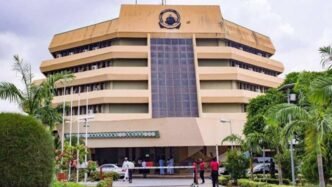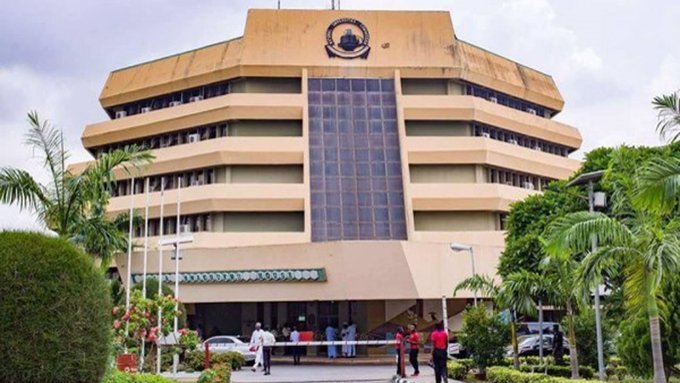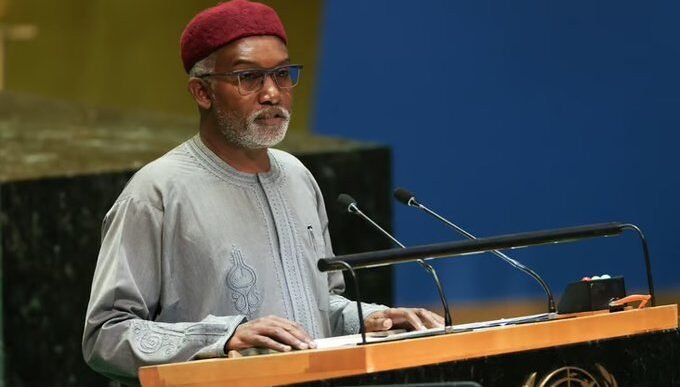Washington D.C./Lagos, Nigeria — The United States Federal Bureau of Investigation (FBI) has announced a reward of $10,000 (approximately ₦14 million) for credible information leading to the arrest and conviction of a Nigerian national, Olumide Adebiyi Adediran, who has been on the run for more than two decades.
The announcement underscores the FBI’s renewed commitment to tracking down fugitives accused of serious crimes, even after many years. Adediran’s case, according to the Bureau, remains an active investigation with international dimensions.
Who is Olumide Adebiyi Adediran?
Adediran, described as a Nigerian citizen in his late 40s to early 50s, has been wanted in connection with criminal activities dating back more than 20 years. While the FBI has not released full details of his alleged crimes, officials noted that his charges are linked to fraud-related offenses that caused significant financial losses to victims in the United States.
According to the Bureau, Adediran has managed to evade law enforcement since the early 2000s, moving across countries and reportedly changing his appearance to avoid detection.
“Adediran has been a fugitive for far too long,” the FBI said in a statement. “We remain determined to bring him to justice, and we believe someone, somewhere, has information that can help us close this case.”
The Reward: $10,000 for Information
In announcing the $10,000 reward, the FBI appealed to members of the public — both in the United States and abroad — to come forward with information about Adediran’s whereabouts.
“Our message is clear: no matter how long it takes, we will continue to pursue fugitives who think they can escape justice,” said James Smith, Assistant Director in Charge of the FBI’s New York Field Office. “We urge anyone with information about Adediran to come forward. A single phone call or tip could help us bring closure to this case.”
The Bureau explained that all tips will be treated with strict confidentiality, and individuals providing credible leads may qualify for the reward.
A Two-Decade Manhunt
Adediran’s case highlights the persistence of U.S. law enforcement in pursuing fugitives over extended periods. Despite technological limitations in the early 2000s, investigators managed to keep track of Adediran’s movements but were unable to apprehend him.
With advancements in digital surveillance, border monitoring, and international policing partnerships, officials believe the chances of capturing Adediran are now higher than ever.
“This case is a reminder that time does not erase responsibility,” an FBI spokesperson added. “Regardless of how many years have passed, fugitives cannot escape accountability.”
International Implications
Given Adediran’s Nigerian nationality, the case also raises questions about international cooperation between the United States and Nigeria in combating cross-border crime.
Nigeria and the U.S. have a long-standing partnership in areas such as law enforcement, anti-corruption, and counterterrorism. The Mutual Legal Assistance Treaty (MLAT) signed between the two countries provides a framework for cooperation in investigations, extradition, and prosecution of suspects.
Legal analysts suggest that if Adediran is located within Nigerian territory, extradition proceedings could be initiated under the treaty. However, such processes are often complex, requiring court approval and adherence to both domestic and international law.
Spotlight on Nigerian Fugitives Abroad
Adediran’s case is not isolated. Over the years, several Nigerians have been declared wanted by international law enforcement agencies, particularly in relation to cybercrime, wire fraud, and financial schemes.
The FBI, in particular, has previously released lists of wanted Nigerian nationals involved in large-scale fraud operations targeting U.S. citizens and institutions. These cases often attract significant media attention due to the financial losses involved and the global networks that enable such crimes.
However, Nigerian officials have repeatedly emphasized that the actions of a few individuals should not define the reputation of the country or its citizens.
Reaction from Nigerian Authorities
As of press time, the Nigerian government had not issued an official response to the FBI’s latest announcement. However, officials familiar with law enforcement cooperation said the country would support efforts to ensure fugitives are brought to justice.
A senior official in Abuja, speaking anonymously, noted:
“Nigeria maintains strong ties with the United States in law enforcement matters. If credible information points to Mr. Adediran residing in Nigeria, the proper legal processes will be followed to ensure compliance with international agreements.”
Public Awareness Drive
The FBI has also launched a public awareness campaign to generate leads in the Adediran case. His profile, including photographs and identifying details, has been updated on the Bureau’s “Most Wanted” fugitives list. Flyers and digital posters are being distributed across the U.S. and internationally, particularly in countries where Adediran is suspected to have ties.
The campaign highlights his Nigerian origin, possible aliases, and known connections to both Africa and North America.
The Broader Fight Against Financial Crimes
Financial crimes and fraud remain a major concern for U.S. authorities, costing billions of dollars annually. Nigerian nationals have been implicated in some high-profile cases, often associated with organized networks.
Experts say the FBI’s persistent pursuit of fugitives like Adediran sends a message to criminal groups that impunity will not be tolerated.
“International financial crimes have no borders,” explained Dr. Anthony Nwosu, a security and governance expert. “When a case like this remains open for decades, it undermines trust in global systems. The FBI’s renewed push is both symbolic and practical — it’s about deterring future offenders while delivering justice to victims.”
Community Call to Action
The FBI has urged communities in the United States, Nigeria, and the wider diaspora to assist with credible information.
Tips can be submitted through the FBI’s website, its nearest field office, or via international law enforcement channels. Informants are not required to reveal their identities if they fear retaliation.
“Someone knows where Adediran is hiding,” the Bureau reiterated. “We are appealing to the conscience of the public — help us bring him in.”
Conclusion
The $10,000 reward announced by the FBI marks a new chapter in the two-decade-long hunt for Olumide Adebiyi Adediran, a Nigerian fugitive accused of fraud-related crimes.
While the announcement has drawn global attention, the case also highlights the importance of cross-border cooperation in law enforcement and the growing role of public participation in solving international crimes.
For the FBI, the message is simple: justice may be delayed, but it will not be denied.














